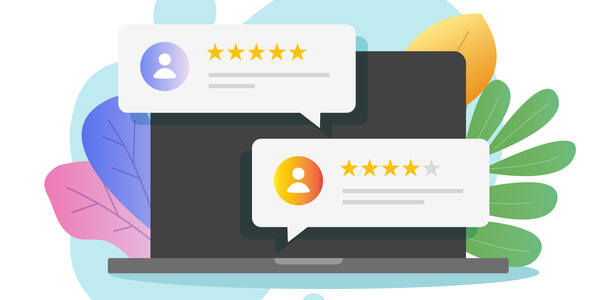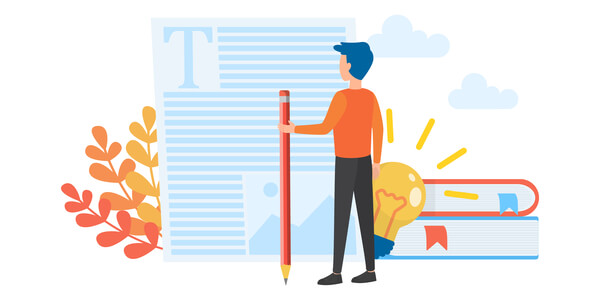Once a business decides they’re ready to commit to a website, or perhaps it’s time to refresh the existing one, they need to consider who is the best fit for the job. You mustn’t cut corners when designing a website; therefore, hiring a professional Web Designer is key.
Although businesses may have some basic knowledge of updating website copy, uploading blogs and adding product or service information, the actual designing of a sophisticated site should be left to the pros.
There is so much more to designing a website than meets the eye. It’s not just about building a platform to host copy and imagery. Websites require a touch of everything from coding and graphic design to understanding user experience, sales and marketing.
With this in mind, businesses must choose the best Web Designer to suit their needs, whether that’s a freelance professional or a fully-fledged agency. Still, there are several factors to consider before committing just yet.
Functionality
Firstly, consider what your business needs from their website. If, for example, you’re looking for a website to drive enquiries and capture customers contact details, then this needs to be part of the functionality brief.
The whole website must be mobile responsive as that is how the majority of browsers will access the site, especially whilst they’re out and about. It’s important to note here that Google will judge a website on how mobile responsive it is, thus influencing SEO (Search Engine Optimisation).
Experience
Once you know what you’re looking to achieve in terms of functionality on the site, it’s essential to find a Web Designer who can recreate this for you. Some Web Designers may specialise in different areas or techniques, so they must know what’s required from the start.
Suppose you require something more on the technical side, as well as a Copywriter and SEO Expert, for example. In that case, you may want to consider an Agency that has a broader range of skillsets available under one roof.
Price
As critical as websites are to businesses, to some extent, the available budget will still be a deciding factor. Companies should obtain multiple quotes based on their brief to get an understanding of how much the project will cost and what each Web Designer includes in their proposals.
Bear in mind, Web Designers often require a partial payment upfront initially, with the remaining balance settled at the end of the project. There may also be additional fees along the way, such as Domain and Hosting fees.
Testimonials and Portfolio
Don’t be afraid to ask for testimonials from previous clients when vetting Web Designers. Other customers’ experiences will help you understand what level of service you’re likely to receive from the Designer.
Furthermore, their portfolio may inspire you to rethink your initial visions for the site once you know what they’re capable of.
Style
As above, Web Design isn’t just about coding and, as you’d expect, some designers have their own creative style. Reviewing previous projects and their portfolio will help you decide if their style is going to suit your brand.
Of course, the design brief can influence this, but it will be easier to work with someone who fully understands your vision. That being said, the experience a Web Designer or agency brings may influence a business’s desired look and feel based on best practice and functionality.
Copywriting
A large part of building a website that successfully engages and converts customers is the copy. Now, this may not be a skill set that many Web Designers hold, so it’s important to be clear from the start who will be writing the copy and when it’s required to stay on schedule.
Web Designers may be able to recommend copywriters that they have collaborated with in the past, but it’s likely a requirement that your business will face again. Businesses should have a consistent style and tone of voice across all of their copy, from the website to printed assets, so connecting with a trusted copywriter may be necessary.
Planning an outline of the website, including critical pages and topics, will help map out the requirements. Although they may not be responsible for actually writing the copy, Businesses may find professionals can add value from a design point of view.
Website copy should be informative but in line with the brand tone of voice and suitable for the target audience. It must also be displayed in a mobile responsive manner, so consider how headings and paragraphs are reformatted on smaller screens.
SEO
We’ve already touched on SEO, and in fact, it’s not necessarily something the Web Designer will do exclusively – unless you choose an agency that has access to additional skillsets.
SEO is essentially a number of ways businesses can improve their search results listing. From keywords to page load time, it’s essential to include SEO in the planning of a website.
SEO is constantly evolving, and so it may be worth hiring a dedicated professional to work alongside the Web Designer to ensure the site is optimised to its full advantage. SEO experience could influence your chosen Copywriter.
Ongoing Support
Businesses need to consider what happens once the website is built. Will you have the knowledge in-house to manage the site, or should you be looking into a long-term contract or retainer with a designer?
The initial agreement with a Web Designer may include additional support short-term following the project completion to iron out any bumps. Equally, the Designer may offer more long-term support.
Project Plan and Deadlines
As with any outsourced task, you should agree on a Project Plan and Deadlines with your Web Designer before anything begins. Some Designers will charge per hour and others by project, so this may impact your final bill.
Furthermore, if you are bringing in additional support from Copywriters, SEO professionals or even Graphic Designers, you will need to ensure that everyone is working to the same plan and deadline; otherwise, one could risk delaying another.
Relationship
It’s likely that you’re going to develop a partnership with your Web Designer. Whether that’s limited to the duration of the current project at hand or the long-term management of your website. There’s no point choosing a Designer who looks the best on paper if you truly feel they won’t understand your business, values and vibe.
Websites are a vital tool for businesses, so you need to ultimately choose someone you’re going to trust to get the job done – on time and exactly how you want it.
Help Your Business with a Trading Online Voucher
Let's look at Ireland's Trading Online Voucher (TOV) Scheme, a fantastic program designed to help businesses enhance their online presence. We'll...
Should I Have A Social Media Content Calendar?
Are you tired of the last-minute panic of figuring out what to post on your multiple social media accounts? Enter the world of the social media...












